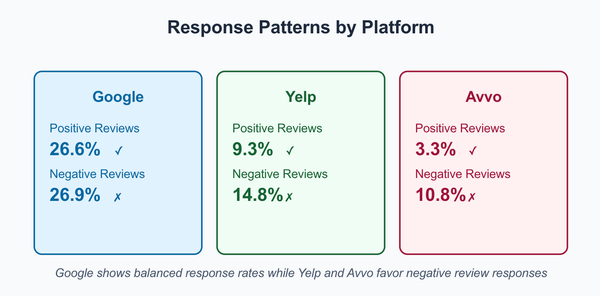What Does a Labor and Employment Attorney Do? A Comprehensive Guide

When we hear the term “labor and employment attorney,” we immediately think of workers suing their employers, labor unions negotiating contracts, or disputes over workplace rights between employers and employees. However, these scenarios are just a part of the picture and the work of a labor and employment attorney is way above just representing clients in court.
A study shows that the Equal Employment Opportunity Commission (EEOC) has filed over 110 workplace discrimination lawsuits in the fiscal year 2024 alone. This highlights that employees and employers must have a proper legal support system with pro labor law attorneys to safeguard their rights in such cases.
But what does an employment lawyer really do? How can you hire a labor attorney, and what cases will they help you with? To clear your doubts, today we’ll understand the role of a labor and employment attorney, the types of cases they handle, the qualifications needed to become one, and how they can help employees and employers with legal employment issues. Let’s get started!
What is a Labor and Employment Attorney?
A labor and employment attorney is a professional who specializes in legal issues related to workplace disputes and protecting the rights of employers and employees alike. This area of law covers a wide range of topics, including unfair hiring practices, wrongful termination, workplace discrimination, wage & hour issues, employee benefits, wrongful employee lawsuits, and labor union-related matters. They can provide advice, assist in negotiations, mediate disputes, and, if necessary, represent their clients in court or before administrative bodies.
7 Key Responsibilities of an Employment and Labor Attorney

Labor law attorneys represent employers and employees, depending on what field they specialize in and the client base they have the most experience with.
In short, the primary role of a labor and employment attorney is to help each party ensure that workplace laws are not misused and the rights of employees and employers are upheld. Here are the seven key responsibilities of a labor and employment attorney:
1) Advising on Compliance with Labor Laws
One of the primary roles of a labor and employment attorney is to advise employers on how to comply with labor laws that govern the workplace. This includes federal, state, and local regulations such as the Fair Labor Standards Act (FLSA), the Family and Medical Leave Act (FMLA), and the Occupational Safety and Health Act (OSHA).
Employers often seek the guidance of labor attorneys when creating policies, drafting employee handbooks, and ensuring that their workplace practices meet legal requirements.
2) Handling Discrimination and Harassment Claims
Workplace discrimination and harassment are significant areas of concern for both employees and employers. According to a study, about 38% of all women and 14% of men employees had reported workplace harassment. Labor and employment attorneys assist clients in these cases, which may involve issues related to race, gender, age, disability, religion, or sexual orientation.
- For employees, these attorneys can file complaints with the Equal Employment Opportunity Commission (EEOC) or the relevant state agency if they have been victims of discrimination or harassment.
- For employers, these attorneys give valuable legal advice on how to prevent discrimination and harassment in the workplace and defend employers legal rights in case of employee lawsuitsemployers'.
3) Assisting with Wage and Hour Disputes
Wage and hour issues are the most common cases labor and employment attorneys handle. These disputes often revolve around paying fair wages, overtime, and tips in a corporation ( governed by the FLSA and state-specific labor laws).
- For employees, labor law attorneys can help in cases where they believe they are being underpaid less or have not been compensated for overtime hours worked. The professional assists in filing claims with the Department of Labor or pursuing lawsuits for unpaid wages.
- For employers, these attorneys can help with audits of employee pay practices, properly classify employees as exempt or non-exempt from overtime pay, and advise on employee time-tracking systems to avoid violations.
4) Representing Clients in Wrongful Termination Cases
Wrongful termination occurs when an employee is found suspect or guilty of violating the employment laws or employment contracts. Labor and employment attorneys are often hired to handle severe termination cases, which may involve retaliation, breach of contract, or workplace discrimination.
- For employees, an attorney can evaluate the circumstances surrounding their termination and advise on whether they have a valid legal claim. If the termination was unlawful, the attorney can assist in filing a lawsuit against the employer for damages.
- For employers, a labor attorney sees that termination procedures comply with the labor law. This may involve reviewing the termination reasons to ensure they are non-discriminatory and legally justified.
5) Negotiating Employment Contracts
Labor and employment attorneys assist both employees and employers in negotiating employment contracts. They ensure that both parties know the meanings of legal terminology in the contract and comply with the rules to avoid legal issues.
- For employees, employment attorneys can ensure their contracts are fair and in compliance with the law. They can help with negotiating terms related to salary, benefits, non-compete clauses, and severance packages.
- For employers, labor attorneys help draft contracts that are clear, enforceable, and compliant with labor laws.
6) Dealing with Employee Benefit Issues
Labor and employment attorneys also help with employee benefits, such as healthcare, retirement plans, and workers' compensation. They help both employees and employers understand their rights and obligations under various benefits programs.
- For employees, a labor discrimination attorney can assist in disputes related to denied benefits and can also represent employees in disputes with insurance companies or benefit providers.
- For employers, labor lawyers help design benefit plans that comply with the Employee Retirement Income Security Act (ERISA) and other relevant regulatory bodies.
7) Handling Union Relations
Labor and employment attorneys specializing in labor law also deal with issues related to union relations, including collective bargaining, union organizing, and labor strikes. They may represent either employers or unions in these matters.
- For unions and employees, labor attorneys negotiate better wages, working conditions, and benefits through collective bargaining. They also help resolve disputes with employers and represent union members in grievances and arbitration proceedings.
- For employers, labor law attorneys help navigate the complexities of labor negotiations to ensure that contracts are legally sound and comply with labor laws. They also assist with legalizing labor disputes, including strikes or work stoppages.
Key Skills of a Labor and Employment Attorney

Employment law is a critical area where a professional deals with sensitive disputes on a daily basis. To excel in this field, a labor and employment attorney must possess specific skills and attributes:
- Knowledge of Employment Laws: Labor attorneys for employees and employers should have an in-depth understanding of federal, state, and local labor laws, including those governing wage and hour issues, discrimination, and employee benefits.
- Strong Communication Skills: During employee lawsuits, things can go wrong at any point. Make sure the lawyer you hire can communicate complex legal concepts clearly to clients and colleagues.
- Negotiation Skills: Many labor and employment disputes are settled outside of court, so negotiation skills are essential for reaching favorable settlements. Your lawyer must have known the Chapter 12 Settlement Authority rules of the U.S. Equal Employment Opportunity Commission to avoid further legal issues during or after the negotiation phase.
- Attention to Detail: Given the complexity of employment laws and the numerous regulations involved, your lawyer must have strong attention to detail skills. It will help both parties decide on a favorable settlement without stretching the case.
- Litigation Experience: Most of the employee harassment cases are resolved through settlement. Still, there are extreme scenarios where both parties deny to cooperate and a reasonable labor attorney must be ready to litigate cases in court when necessary.
How to Become a Labor and Employment Attorney
To become a labor and employment attorney, an individual must complete several steps:
- Earn a Bachelor's Degree: First, you must earn a Bachelor’s degree, typically in a field such as political science, business, or economics.
- Attend Law School: After that, you’ll have to earn a Juris Doctor (JD) degree from an accredited law school.
- Pass the Bar Exam: Each state requires attorneys to pass the bar exam to practice law in a specific jurisdiction field. Know about your state laws and take the bar exam.
- Gain Experience: Many labor and employment attorneys start out as associates at law firms or in government positions before specializing in labor law. Gain experience in different employment cases to understand the difference between theoretical explanations and real cases.
- Consider Certification: Some attorneys obtain additional labor law certifications like the Labor and Employment Law Graduate Certificate or Labor and Employment Law Certificate Program to demonstrate their expertise. Look for certificates in your area of expertise and earn relevant achievements by fulfilling the requirements.
- Know your competition: Knowing how many professionals are already working in your field is also essential. It will help potential aspirants to make better preparations for the future and choose the practice area that is most successful in a specific region. Check out this lawyer statistics page to learn the exact number of lawyers in different states of the US, the number of reviews, lawyer ratings, and what practices they are in.
Protect Your Rights with the Best Labor and Employment Lawyer!
A labor and employment attorney is like the bridge between employees and employers trying to adhere to complex workplace law. Whether dealing with discrimination, wrongful termination, wage disputes, union-related issues, or the need to defend your organization against false lawsuits, hiring a professional labor discrimination attorney can make a huge difference. Sign up on the Lawyersrating.FYI, and connect with the best lawyers in the USA.





